At Gucci’s London Store, Contemporary Art Complements the Clothes
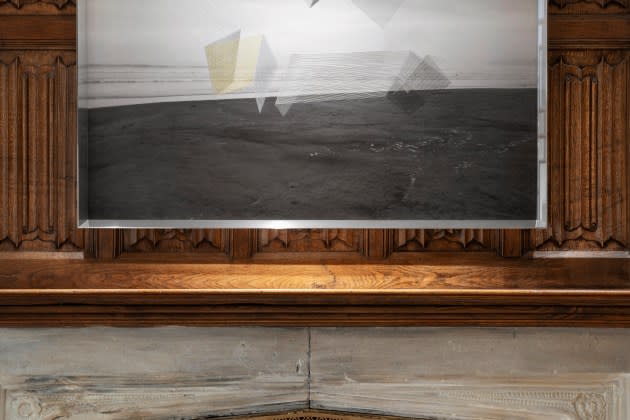
LONDON — The Gucci store on New Bond Street has become part art space, with creative director Sabato De Sarno decorating the walls with his favorite works from contemporary artists.
It hasn’t been such a big leap. The 15,000-square-foot space is a Grade-II listed building that was founded in 1913 as an art gallery and neighbors on the street include Sotheby’s, Halcyon Gallery and Richard Green.
More from WWD
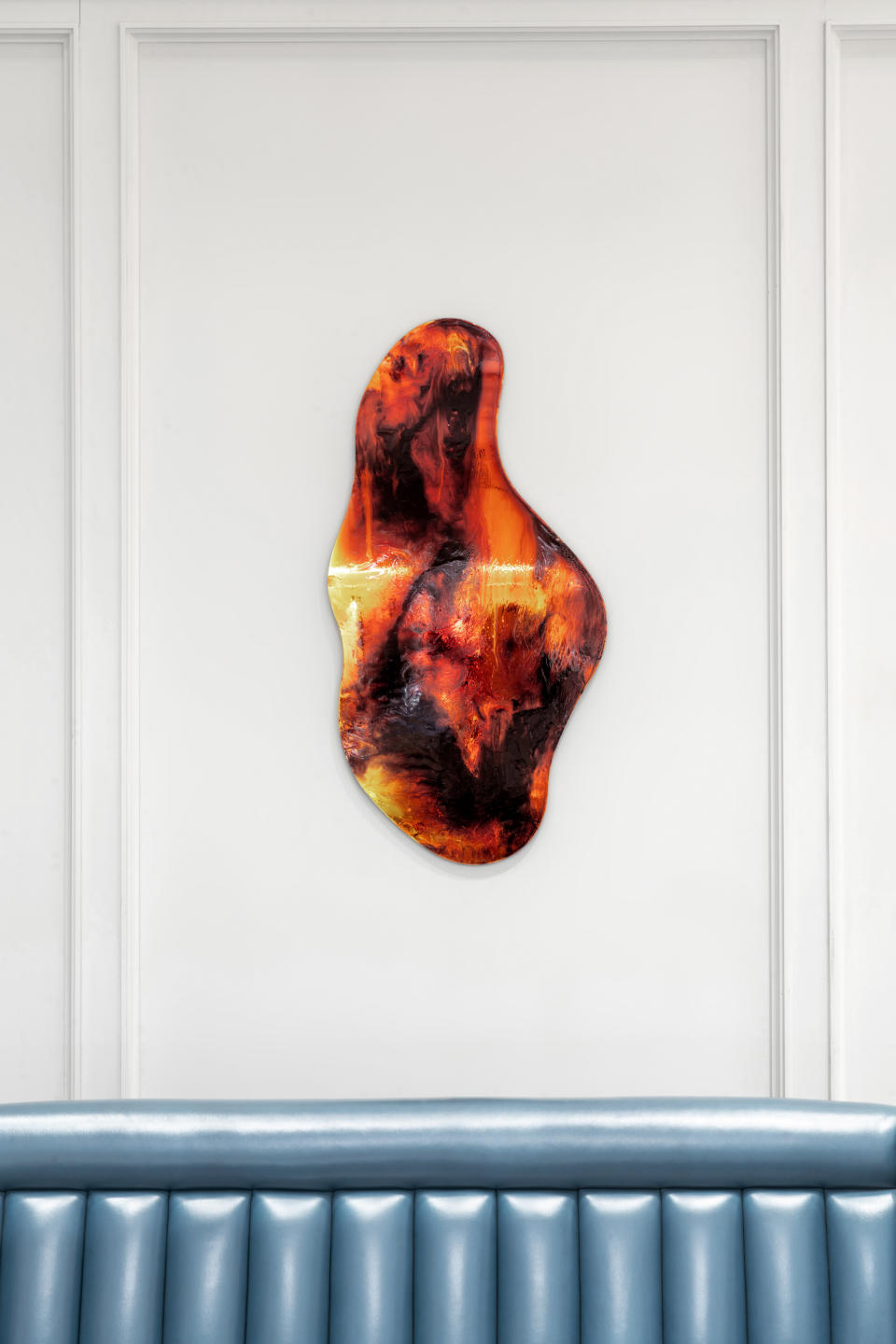
The latest curation, and second rehang since last September, is a collaboration between De Sarno and Truls Blaasmo, the Milan-based Norwegian art adviser, who’s been working closely with the brand.
Currently, more than 15 pieces of art are on display across five floors, and all of it is on loan from private owners, museums, or the artists themselves. They include six pieces from the Panza Collection, which was started by Giuseppe and Giovanna Panza in the ‘50s.
The artworks are located in corridors or hanging in rooms that showcase high jewelry, luggage borrowed from Gucci’s archive in Florence, or De Sarno’s ready-to-wear collections.

“Sabato has a big appreciation for contemporary modern art and it’s nothing new for Gucci to establish themselves within the art world, or a wider range of culture, because they’ve always done it,” said Blaasmo in a preview of the second installation.
The theme is “dystopian with somber undertones,” and of the works on display, some are geometrical, others are heavy on primary color. There are also sculptures and text-based art.
Artists include Linda Besemer, Winston Roeth, Ettore Spalletti, Ross Rudel, Patricia Grace Moisan, Franco Mazzucchelli, Bokani, Sonia Boyce and more.
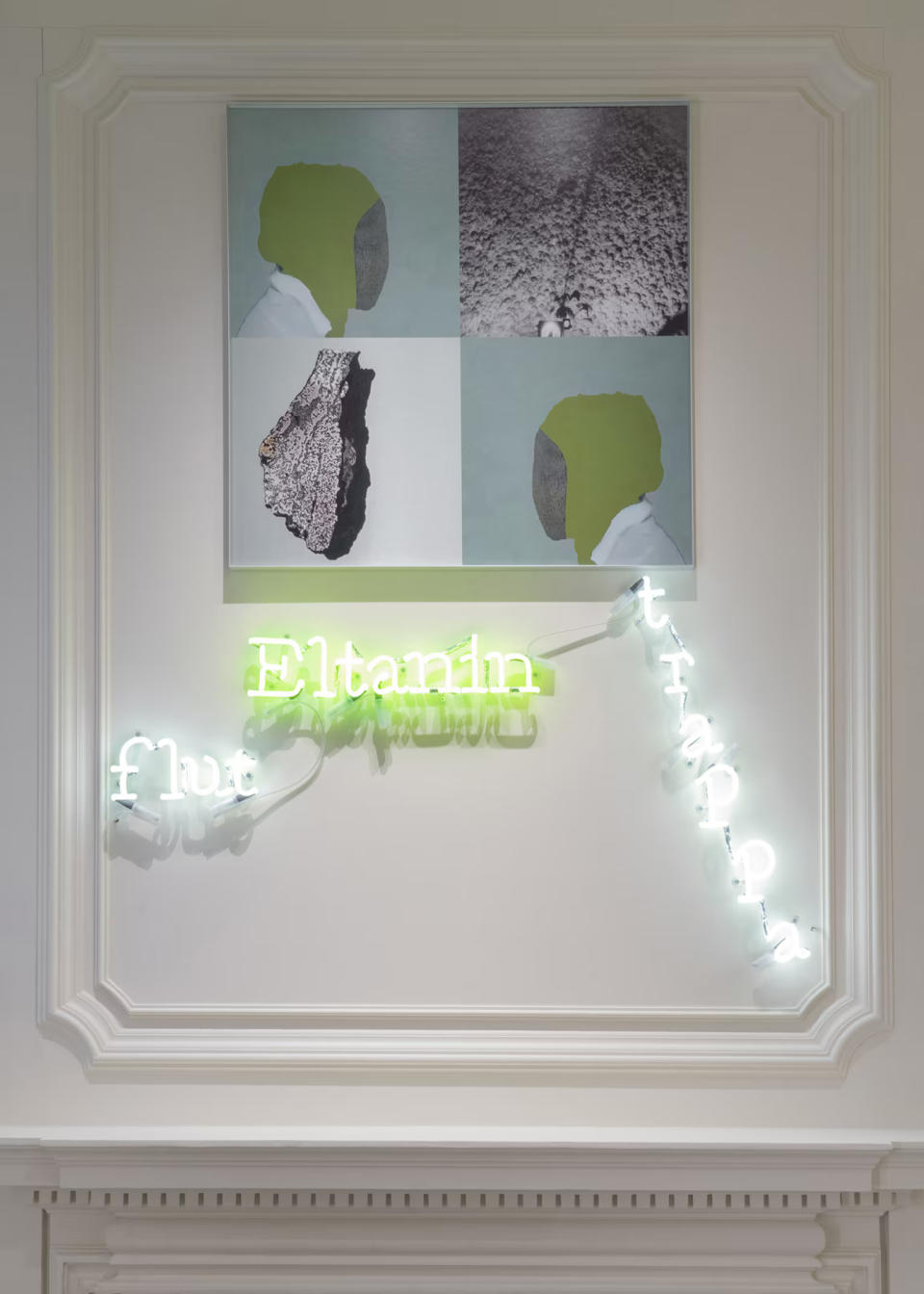
On the ground floor, Mazzucchelli’s “Bieca Decorazione,” an inflated PVC canvas filled with air, hangs between the brand’s leather and canvas handbags.
Mazzucchelli was a pioneer in experimenting with synthetic materials in the ‘60s and his piece on display is a critique of the art market.
“For me, this artwork really pushes the boundaries of what a material can do, and how it does it,” said Blaasmo.
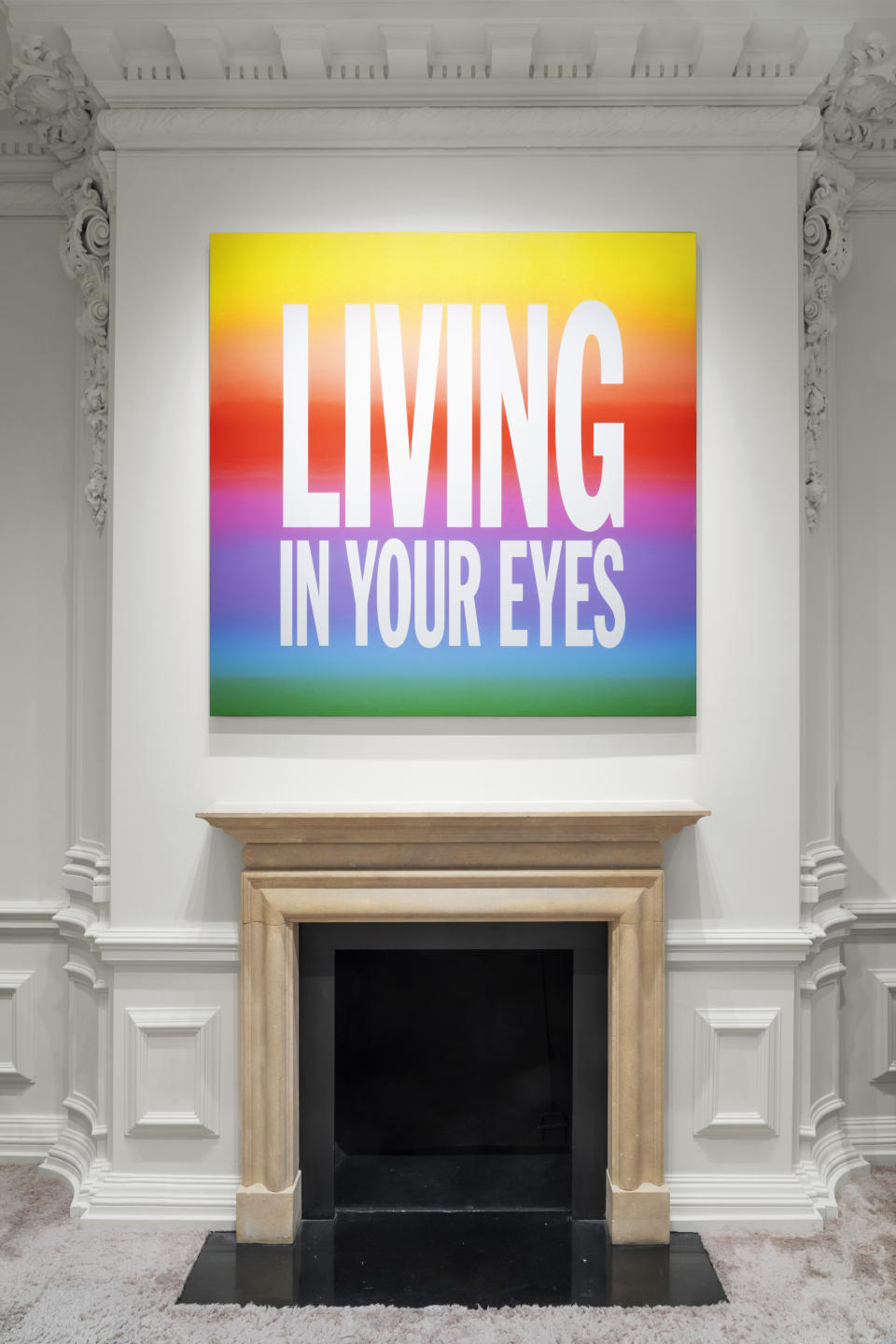
Next to it is a red piece by the Italian artist Agostino Bonalumi, which changes with the light depending on which side the artwork is viewed from. Blaasmo believes it complements the darkness of the Mazzucchelli work.
In the high jewelry room, French-Lebanese artist Flavie Audi’s “Brick 57,” “Brick 61” and “Brick 62” are installed on the wall, resembling layers of petrol spread out across water. The artist uses iridescent pigments and melting glass with resin and precious metals to make her pieces.
Danish multidisciplinary artist Kristian Kragelund’s “Untitled_MBs_01” hangs in a powder pink room, giving an edge to the space.
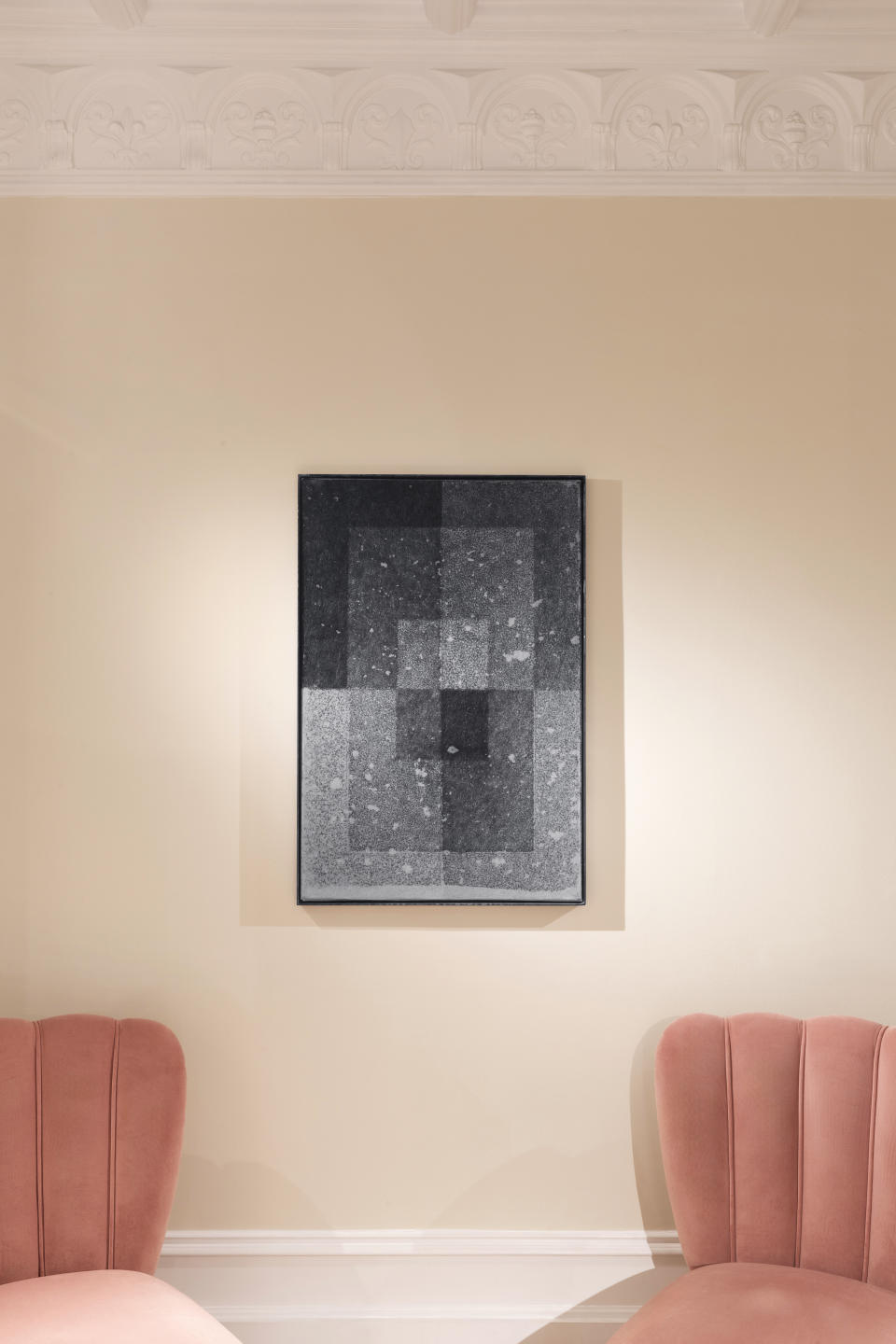
The dark gray frame is part of the artwork that shows 12 different squares layered on top of each other, using light and dark shades of gray to create an optical illusion inspired by Mach Bands, a gradient effect named after physicist Ernst Mach.
One of the most compelling pieces in the curation is in the Tudor Room, where wood-paneled walls have been restored to showcase Gucci’s rich luggage archive and a silver frame displaying Maurizio Anzeri’s “Heavenly Sounds — Pink & Yellow,” which stands out against the deep brown room.
“From a curatorial point of view, this is probably the most challenging room to find artwork that dialogues with the history of the room,” said Blaasmo.
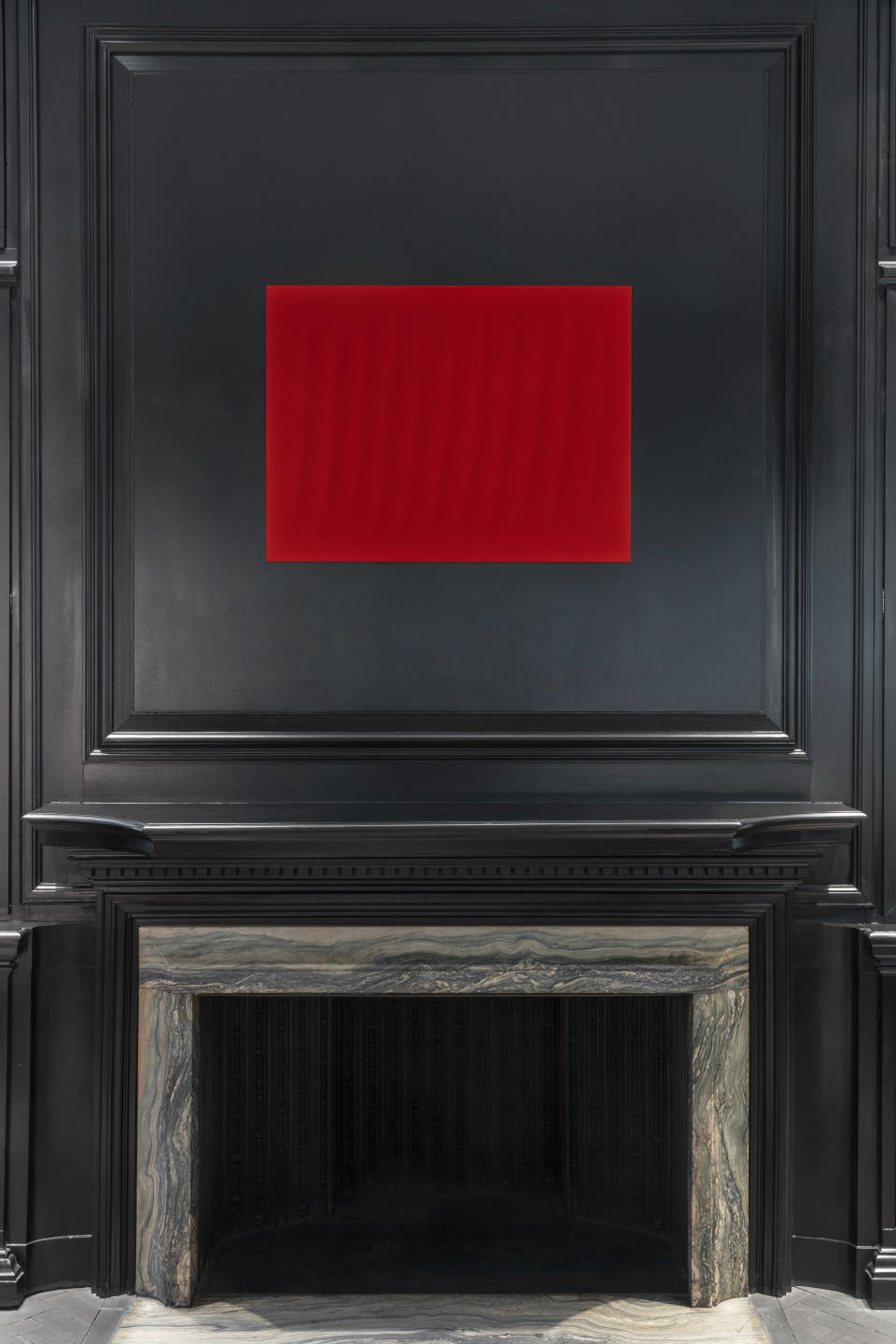
He said his aim is for three elements: “the room, the history of the building, and the artwork to be in conversation with each other — either reflecting or contrasting each other. Maurizio plays with the idea of crossing the borders of when an object becomes a sculpture as well,” Blaasmo added, pointing out that the work on display is a photograph with embroideries embedded in it.
The Italian artist’s work commands the room in a powerfully masculine way.
“When you look at his whole body of work, his creative path is really not defined by masculinity. He’s so feminine in some of his work,” Blaasmo added.
The curved staircase leads to the men’s floor on the lower ground, where artist Bokani’s stained glass artwork in a burnt red with tints of orange is plastered onto the wall, acting as a mirror for passersby.
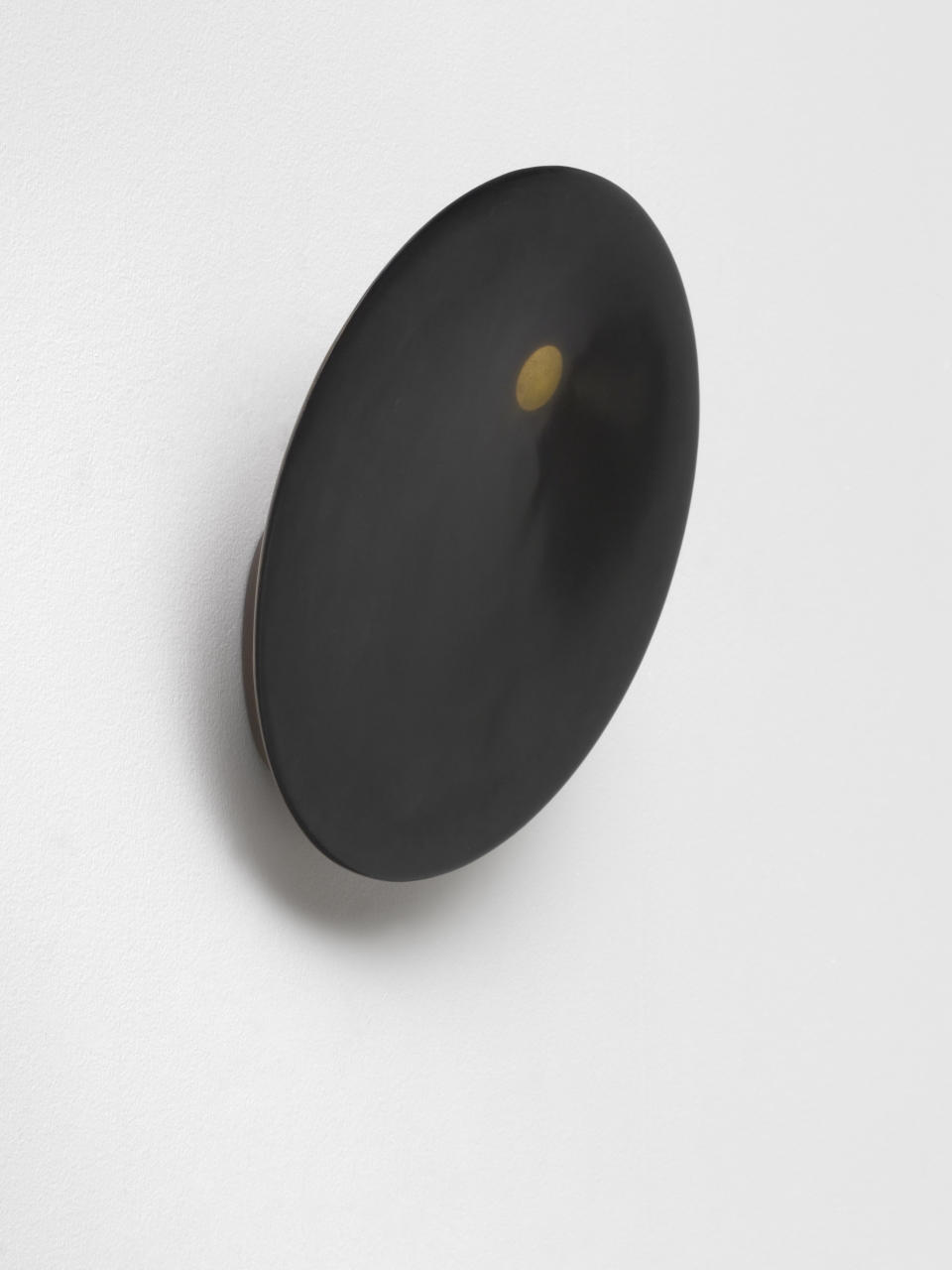
The work is a bridge of African sensibilities with Western conceptual art that nods to ecology and climate justice.
“The artist really drags us into her understanding of materials, but without telling us too much about it. The work gives us a healing and [adds] a depth to the space,” said Blaasmo.
Located by the lower floor’s stairs is Sonia Boyce’s “Exquisite Tension,” a four-minute video that plays on an old Sony television.
In 2005, the artist invited curator Adelaide Bannerman and performance artist Guillermo Gómez-Pe?a to sit together as she braided their hair together. Bannerman has coily hair and Gómez-Pe?a has wavy hair.
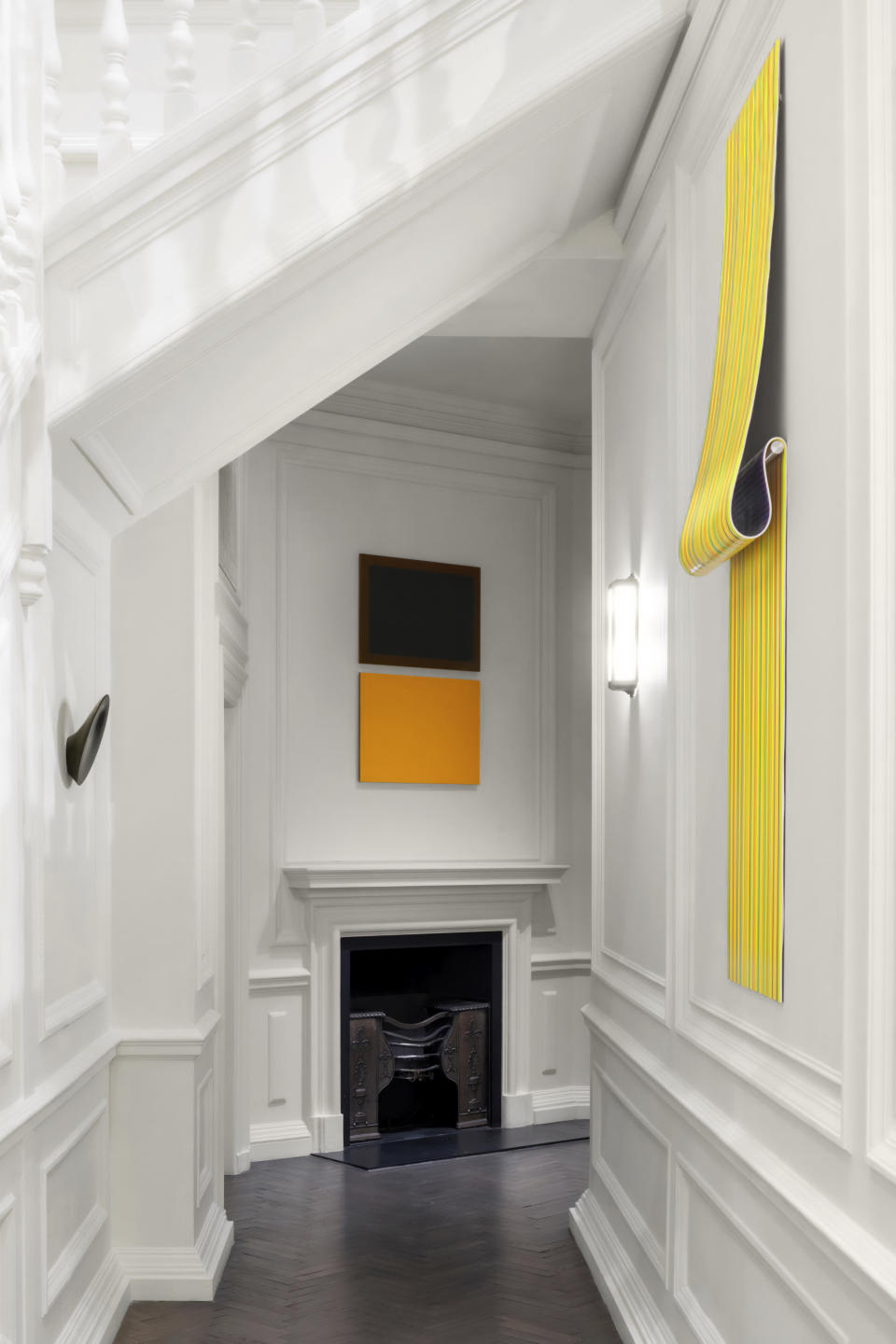
“They signed up to do it without ever having met each other. This is really just a document of me looking at what that action of two people who look supposedly very different from each other and are bound by their hair,” said Boyce, who a week ago received a damehood for services to art, and will be officially knighted by King Charles later this year.
Her two subjects struck up a friendship after participating in the artist’s experiment.
“It’s quite an unusual invitation for me [to be here], as I mainly show in museums and independent art spaces, so I’m trying to live up to the expectations of being in such a prestigious space,” added Boyce.
Blaasmo said he was very proud of featuring “Exquisite Tension” because it’s a “very important work of art.”
Best of WWD
Solve the daily Crossword

